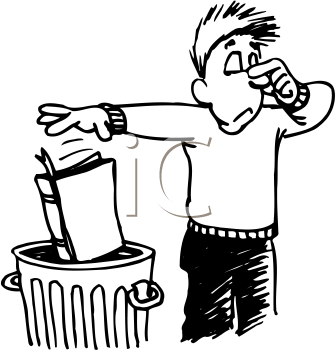Our existing and relatively famous Against Heresies is supposed to be a work written by Irenaeus. Open any reference to Irenaeus and they will tell you he said this or that because it appears on a certain page in the book. Yet in the same breath these 'serious scholars' tell us that parts of Irenaeus's Against Heresies derive from Justin's Against Heresies (i.e. the 'syntagama') and not just a line here or there but massive sections of the work (i.e. the very accounts of some of the heretics).
With me so far?
Justin's work gets squished into Irenaeus's work but the appropriation is never mentioned when citing from our Against Heresies. Irenaeus can take over Justin but even the material he steals is now 'all his.'
But that's not the end of it.
Irenaeus's work gets incorporated into Hippolytus's lost syntagma which is also called 'Against Heresies' which in turn was somehow expanded into the current edition of the Philosophumena attributed to Origen. Irenaeus's work also somehow became transformed into the Latin text called Against All Heresies attributed to Tertullian. Only the author of the Philosophumena admits he is taking over something that isn't his. He also admits that he is 'correcting' shortcomings in Irenaeus's original reporting.
Yet even with all this alteration and manipulation we can believe that the 'Marcionites' and the 'Ebionites' are more or less 'exactly' as described in this ever changing, ever recycling amorphous text.
And we're not finished yet.
Tertullian used the original source behind the account of the Valentinians which became incorporated into the first few chapters of Irenaeus's Against Heresies. Let's assume that Irenaeus wrote that too (at this point who knows). We have to acknowledge that - Incredibly - Tertullian doesn't tell us that he is using Irenaeus's original work but essentially passes the material off as his own. The only reference he gives to the massive recycling of material that is going on is this oblique reference in the same work:
My own path, however, lies along the original tenets of their chief teachers, not with the self-appointed leaders of their promiscuous followers. Nor shall we hear it said of us from any quarter, that we have of our own mind fashioned our own materials, since these have been already produced, both in respect of the opinions and their refutations, in carefully written volumes, by so many eminently holy and excellent men, not only those who have lived before us, but those also who were contemporary with the heresiarchs themselves: for instance Justin, philosopher and martyr; Miltiades, the sophist of the churches; Irenæus, that very exact inquirer into all doctrines; our own Proculus, the model of chaste old age and Christian eloquence. [Against Valentinians 5]
Now Tertullian's collected writings as well as this statement here betrays in no uncertain terms that he not only recycled material from Irenaeus but other writers as well. Against Marcion Book Three and Against the Jews clearly goes back to an original anti-Jewish treatise written by Justin. But Tertullian clearly also copied out Theophilus's Against Hermogenes and made it his own by embellishment and Books Four and Five of Against Marcion clearly derive also from the bishop of Antioch.
The point through all of this is that in common parlance what we accept as the 'sacred writ' of the Church Fathers is recycled material. This 'robbery' is ignored and the texts are treated as something other than what they are - i.e. rubbish.
rub·bish/ˈrəbiSH/Noun
1. Waste material; refuse or litter: "an alleyway high with rubbish".2. Material that is considered unimportant or valueless: "she had to sift through the rubbish in every drawer".
I know I am going to get flack for referring to this material as 'garbage' but my intent isn't to disparage the canon of saints in the Church. I have a problem with 'us' and the unconscious deception we perpetrate in order to get everyone to 'believe in' these corrupt texts.
You can lose a great book by dumping into a trash can. Once the book goes into the trash and is recycled it becomes rubbish. What was once great and noble is now something less than great and noble. Yet these delusional people argue that what is now stained with blotches, ketchup, coffee grinds and soaked in water is still as pristine as the day the original material came from the hand of the original author (whoever that was).
This is simply a self-serving fantasy on the part of the pious.
We let down our ancestors by allowing important testimonies to become corrupted. Anyone who tells you with a straight face that Justin said this or Irenaeus said that is either a simple minded fool or an uncritical thinker.
These claims are even lower down in the metaphorical trash can that the place where the original material was discovered ...
























































